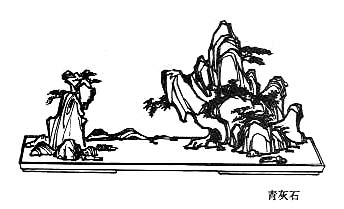詩
經
Shi Jing 
 – The Book of Odes
– The Book of Odes
The oldest collection of Chinese poetry, more than three hundred songs, odes and hymns. Tr. Legge (en) and Granet (fr, incomplete).
Shijing II. 3. (176)
Luxuriantly grows the aster-southernwood,
In the midst of that large mound.
Since we see our noble lord,
We rejoice, and he shows us all courtesy.
Luxuriantly grows the aster-southernwood,
In the midst of that islet.
Since we see our noble lord,
Our hearts are full of joy.
Luxuriantly grows the aster-southernwood,
In the midst of that great height.
We see our noble lord,
And he gives us a hundred sets of cowries.
It floats about, – the willow boat,
Now sinking, now rising again.
Since we see our noble lord,
Our hearts are at rest.
Legge 176
Ô la belle, la belle armoise,
qui est au milieu du coteau !
Sitôt que je vois mon seigneur,
quelle joie donc et quel respect !
Ô la belle, la belle armoise,
qui est au milieu de l'îlot !
Sitôt que je vois mon seigneur,
mon cœur alors a la gaîté !
Ô la belle, la belle armoise,
qui est au milieu de la berge !
Sitôt que je vois mon seigneur,
il me donne cent coquillages !
La barque en peuplier vogue ! vogue !
plongeant tantôt, flottant tantôt !
Sitôt que je vois mon seigneur,
mon cœur alors a le repos !
Granet LIII.

The Book of Odes – Shi Jing II. 3. (176) – Chinese on/off – Français/English
Alias Shijing, Shi Jing, Book of Odes, Book of Songs, Classic of Odes, Classic of
Poetry, Livre des Odes, Canon des Poèmes.
The Book of Odes, The Analects, Great Learning, Doctrine of the Mean, Three-characters book, The Book of Changes, The Way and its Power, 300 Tang Poems, The Art of War, Thirty-Six Strategies
Welcome, help, notes, introduction, table.
Index – Contact – Top
